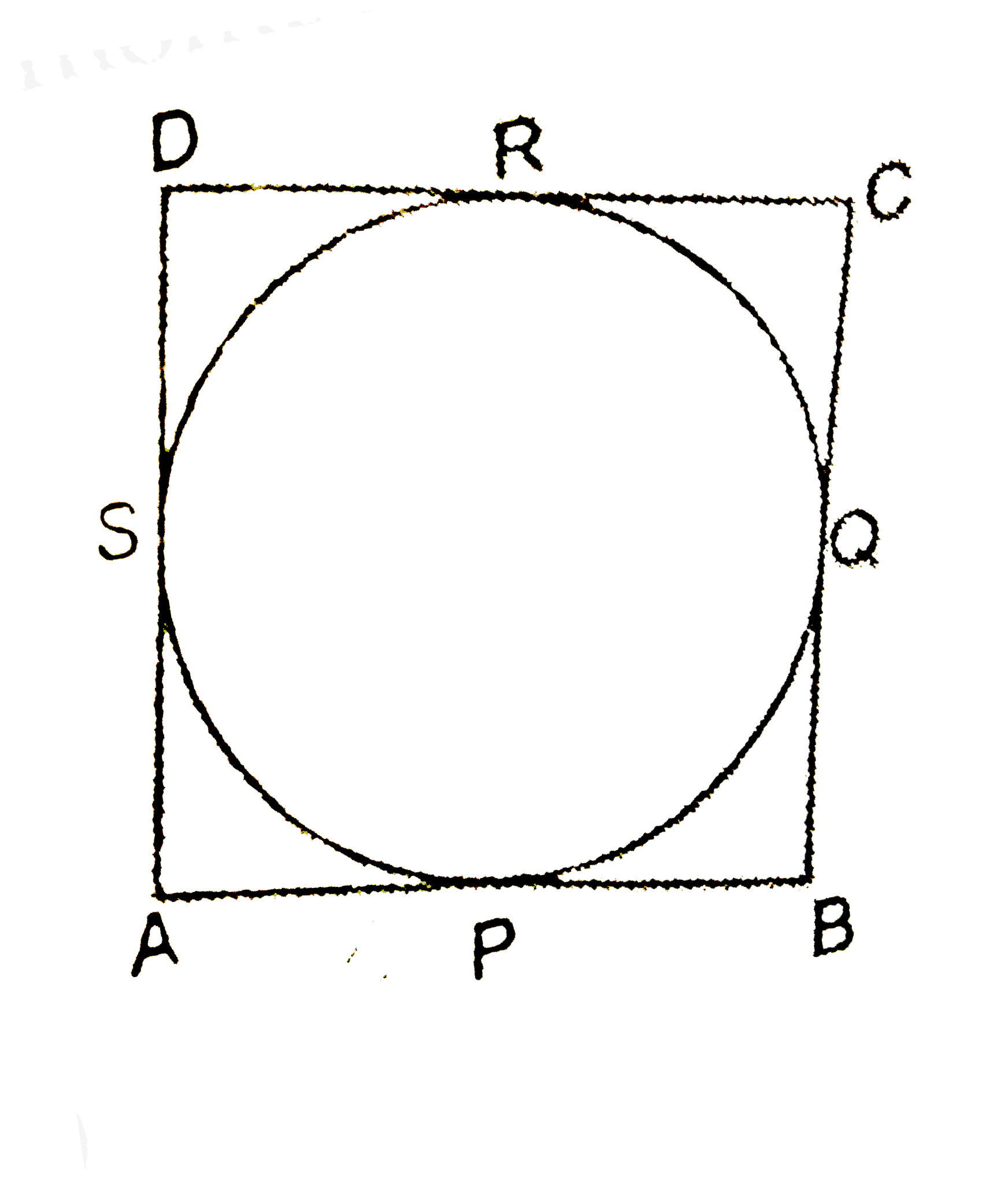If a parallelogram circumscribes a circle then prove that it must be a rhombus.

Given a parallelogram, say ABCD, Let this parallelogram touch the circle at the point P, Q, R and S.
As AP and AS are tangents to the circle drawn from an external point A.
AP=AS …(1)
Similarly, BP=BQ …(2)
CR=CQ ...(3)
DR=DS ...(4)
Circles
Adding (1), (2), (3) and (4), we get
⇒ AP+BP+CR+DR=AS+BQ+CQ+DS
⇒ (AP+BP)+(CR+DR)=(AS+DS)+(BQ+CQ)
⇒ AB+CD=AD+BC
⇒ AB+AB=AD+AD
(CD=AB, DB=AD, opposite sides of a parallelogram)
⇒ 2AB=2AD
⇒ AB=AD
Hence, ABCD is a rhombus. (∵ adjacent sides of a parallelogram are equal) Hence Proved.
Topper's Solved these Questions
- CIRCLESBOOK - NAGEEN PRAKASHAN ENGLISHCHAPTER - CIRCLESEXERCISE - Problems From NCERT/exemplar
11 Videos
- CIRCLESBOOK - NAGEEN PRAKASHAN ENGLISHCHAPTER - CIRCLESEXERCISE - Exercise
32 Videos
- ARITHMETIC PROGRESSIONBOOK - NAGEEN PRAKASHAN ENGLISHCHAPTER - ARITHMETIC PROGRESSIONEXERCISE - Revision Exercise Long Answer Question
5 Videos
- CO-ORDINATE GEOMETRYBOOK - NAGEEN PRAKASHAN ENGLISHCHAPTER - CO-ORDINATE GEOMETRYEXERCISE - Revision Exercise Short Answer Questions
10 Videos
Similar Questions
If the sides of a parallelogram touch a circle prove that the parallelogram is a rhombus.
View SolutionIf all the side of a parallelogram touch a circle, show that the parallelogram is a rhombus. OR Prove that a parallelogram circumscribing a circle is a rhombus.
View SolutionProve that the parallelogram circumscribing a circle is a rhombus.
View SolutionProve that the parallelogram circumscribing a circle is a rhombus.
View SolutionProve that the parallelogram circumscribing a circle is a Rhombus.
View Solutionif diagonals of a parallelogram bisect each other,prove that its a rhombus
View SolutionThe diagonal BD of a parallelogram ABCD bisects angles B and D. Prove that ABCD is a rhombus.
View SolutionIf a hexagon ABCDEF circumscribe a circle, prove that AB+CD+EF=BC+DE+FA
View SolutionIf a hexagon ABCDEF circumscribe a circle, prove that AB+CD+EF=BC+DE+FA
View SolutionProve that opposite sides of a quadrilateral circumscribing a circle subtend supplementary angles at the centre of the circle.
View Solution
